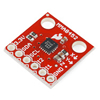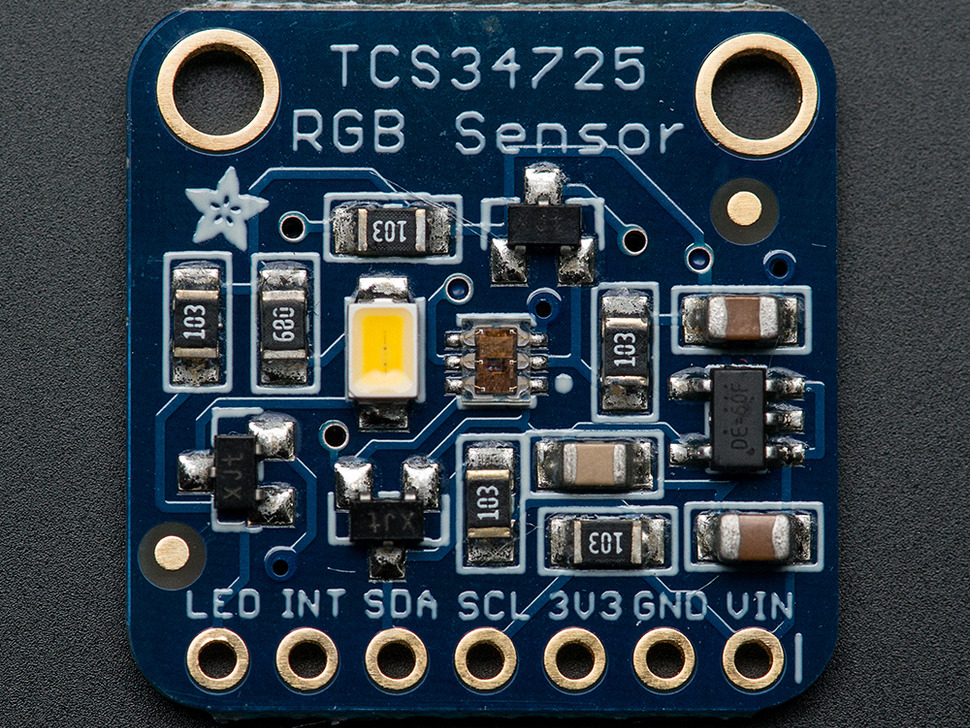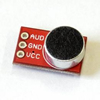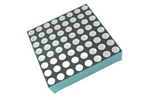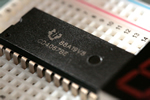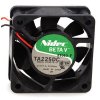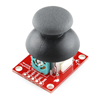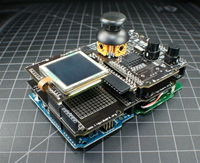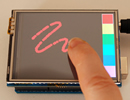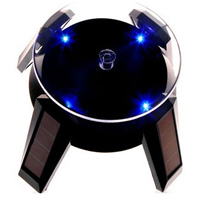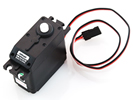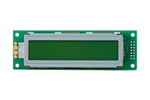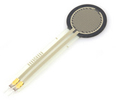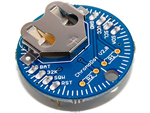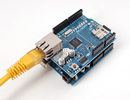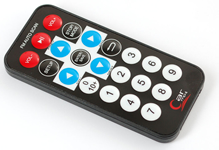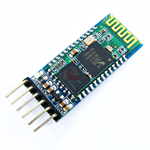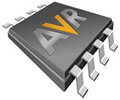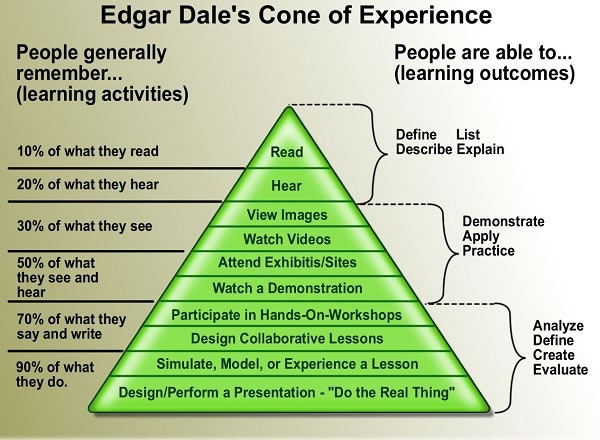 Edgar Dale's Learning Pyramid was one of the inspirations that led to the creation of our ACES program in 2003. What learners 'do' is the foundation of his Cone of Experience. ISPs are the primary 'doing' means by which we achieve Edgar's claim and that we honour RSGC's Mission Statement (...each boy will be the best version of himself), Primary Objective (...prepare boys to thrive and lead in changing world), and Academic Vision (blaze trails, take risks, dig in). One aspect of what lies ahead is becoming clearer by the month, namely, only those individuals that are deeply committed to continuous skill development can hope to thrive. Whether you eventually lead will require additional talents and twists of good fortune.
Edgar Dale's Learning Pyramid was one of the inspirations that led to the creation of our ACES program in 2003. What learners 'do' is the foundation of his Cone of Experience. ISPs are the primary 'doing' means by which we achieve Edgar's claim and that we honour RSGC's Mission Statement (...each boy will be the best version of himself), Primary Objective (...prepare boys to thrive and lead in changing world), and Academic Vision (blaze trails, take risks, dig in). One aspect of what lies ahead is becoming clearer by the month, namely, only those individuals that are deeply committed to continuous skill development can hope to thrive. Whether you eventually lead will require additional talents and twists of good fortune.
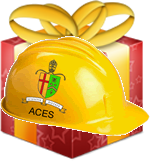 Although universities like to be secretive about their admission criteria, their strategies are exposed indirectly through their offers of early acceptance. The reality is that for the first round of acceptances they simply slice off the top marks presented to them. Your PSE means nothing at this stage, which is a huge fail on their part. Consequently, some Grade 11 ACES feel pressured to drop our program in Grade 12 and throw the extra hours saved into being part of this first wave of acceptances. This is short-sighted in my opinion, in the sense that when you graduate from university, having had next to zero opportunity for practical skill building over your four undergraduate years, employers will care little about your marks. Instead, they want to know about what you have accomplished OUTSIDE of school, what projects you have developed and what skills you have. How tragic. When universities finally adapt to the new realities, we'll reassess our ACES program.
Although universities like to be secretive about their admission criteria, their strategies are exposed indirectly through their offers of early acceptance. The reality is that for the first round of acceptances they simply slice off the top marks presented to them. Your PSE means nothing at this stage, which is a huge fail on their part. Consequently, some Grade 11 ACES feel pressured to drop our program in Grade 12 and throw the extra hours saved into being part of this first wave of acceptances. This is short-sighted in my opinion, in the sense that when you graduate from university, having had next to zero opportunity for practical skill building over your four undergraduate years, employers will care little about your marks. Instead, they want to know about what you have accomplished OUTSIDE of school, what projects you have developed and what skills you have. How tragic. When universities finally adapt to the new realities, we'll reassess our ACES program.
Below is an excerpt from an email received from an ACES Alumnus, in March 2023,
"...I find that the levels of determination and drive to solve ISP problems is unmatched to the levels I experienced during my undergrad. Doing work that interests you on a personal level is extremely important to me, and it’s what I’ve come to realize while seeking full-time work. I have ACES to thank for teaching me that. To this day, I am still so very appreciative for this and my entire career has been impacted by it in a very positive way!"
ACES' ISPs continue to break new ground. Click on the images on the carousel on the ACES home page to see some of the recent best.
It is difficult to maintain focus in a world wired for superficial distraction. The earlier in life you begin to cultivate your own individual strengths and interests the better chance you have of securing your future prospects.
How does one cultivate individual his or her own strengths and interests?
Perpetual curiosity and calculated risk-taking are the primary drivers.
Wise students view required course curricula as potential starting points for their own, deeper investigations. Those students that are simply aiming at getting the highest possible marks alone on the required curricula are setting themselves up for disappointment. Too many others are pursuing that same strategy. You must differentiate yourself to have any chance of rising above the crowd. Furthermore, the great thing about unique achievement and invention is that it is less to do with being naturally gifted and more to do with patient observation, reflection, and endurance (Invention: A Life, James Dyson, p. 2).
10 |
|
|
30% |
30% |
11 |
20% |
20% |
|
40% |
12 |
20% |
20% |
20% |
60% |
Welcome to the home of the ACES' Independent Study Projects (ISPs). This page is meant to inform you of the importance of directing your own learning and suggests avenues of pursuit as you continue your own personal path of growth and discovery within our area of hardware engineering. There is no question that students are considerably more engaged in their own scholastic development when they share the responsibility for the curriculum they pursue. I acknowledge this reality through the contribution of the ISP to your final standing in each course. The proportion of the final course mark within the ACES program of your unique pursuits increases with the grade level to reflect the relative importance of the initiative as you gain more experience. Added to the undeniable long-term benefits of project pursuits is the immediate short-term gain. Read A Builder's High.
The Value of Failure
Ask yourself, "How much do I want to grow as an individual?".
Growth requires risk. Risk accepts the inevitability of failure. Anticipate it, embrace it, and respect what it has to teach you.
Failure is the price of success. They are inextricable. You have to fail to have any hope of generating your own success.
The Value of Witness
As you are so young, it may be difficult to understand the full value of archiving your accomplishments as your journey unfolds. The record of your accomplishments is both self-satisfying, life-sustaining, and a good hedge against the potential doubt in your abilities that has a tendency to bite many people as they age. Whether you show your work to other people is for you to decide but you must maintain the option. Your Design Engineering Report supports the benefits of the archival process. Years after graduation from RSGC you will flip through the pages of your DER and marvel at what you achieved as a teenager. Go one step further and show your DER to someone and watch their jaws drop.
It is by design that ACES are introduced to web skills early in the program to enable them to present their current skills and achievements online. It is absolutely imperative that each of you has a strategic web presence that is as much under your control and direction as possible. One of the best examples of an ACE that started his online presence while in our program and has maintained it through his years in Computer Science at Waterloo is Jack Gettings (he's entering fourth year in September 2014). Check out his online archive as the gold standard to which each of you should aspire.
The Value of Collaboration
Some contend that the engineer's greatest asset is his or her ability to work with others. If you discover that one of your peers shares an equally strong or complimentary interest in a particular pursuit, you should feel free to consider pooling your passions and collaborate on a research endeavour. Crossover collaborations between ACES (hardware/software) can be particularly productive as they leverage the strengths of your skills sets and modern smart technologies.
Proprietary Value-Added
You may be that rare breed that can simply imagine fantastic projects yourself or you may need inspiration for projects that originate from links on this page. In either case, the key to the most successful outcome for your pursuit will be the value you add to the effort. Specifically, value that requires one or more skills or techniques that you have developed. If the procedure is not original, it can be duplicated with ease. If it is original, it can be patented and hence we call it proprietary and law prevents it from being duplicated (at least until the patent expires). So, think hard and long about what you want to invest your time and talent in, and keep in mind the advantage of proprietry value-added.
On Role Models and Leadership
My most-respected role models are individuals that are neither aware that they are leaders nor would they be comfortable being called such. In simply going about their daily affairs, these individuals identify paths for me to follow. Furthermore, age is not a requirement. Would it surprise you to know that some of you, my students, are role models for me?
What type of Engineering is right for you? Take the Quiz, first.
Suggestions for possible pursuit (SE:Software Eng., ES:Eng. Sci., ME:Mech. Eng. EE:Elec. Eng., CE: Comp. Eng, DE: Design Eng. ChE: Chem. Eng) (Dream BIG...) (Evaluation Criteria) :
 (All) Online Project Archives: Instructables, MakerShed
(All) Online Project Archives: Instructables, MakerShed- (EE,SE) Wireless Communications: Radio Frequency (RF) Tx/Rx (Project: Make/Repair RSGC Garage Fobs-save the College Big Bucks!), InfraRed, Bluetooth, etc...
- (CE) Assemble your own PC (possibly) low risk
- Electric Theory: Circuit Analysis (Ohm's Law, Kirchhoff's Laws, Nodal Analysis, etc), Digital Logic & Design (Boolean Algebra, Karnaugh Maps, etc)
 Simple devices to measure scientific properties (ie: Conductivity probe/meter), water level meter/pump
Simple devices to measure scientific properties (ie: Conductivity probe/meter), water level meter/pump- Learn Processing and interface it with the Arduino (Rafe Beatty's Example)
- (All) Develop a new skill i.e. Soldering SMDs (Surface-Mount Devices), CAD 3D, etc.
- (All) Is teaching/mentoring in your future? Consider writing curriculum you can field test with Georgians or as part of an outreach initiative or offering a mentoring commitment
- (EE,CE) Build your own 4-bit Computer. Consider designing a case for your creation with ViaCAD and have it made.
- (ME,DE) Design a part in ViaCAD: a Gear Box, a Screw, a 3D Container, etc. and incorporate it into a demonstration project
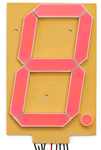 (All) For Specialists: Focus on ONE component of a circuit (ie. power supplies, transistors, PCBs, or microcontrollers,...) and learn everything there is to learn about it. Research it to extreme depths. A decade from now, you could be one of the leading world experts in the field and it to think it all started in high school.
(All) For Specialists: Focus on ONE component of a circuit (ie. power supplies, transistors, PCBs, or microcontrollers,...) and learn everything there is to learn about it. Research it to extreme depths. A decade from now, you could be one of the leading world experts in the field and it to think it all started in high school.- (All) Review the list of Velleman Kits to spark your own project idea
- (EE) Joule Thief: ZXSC380 DC Boost Converter - LED Driver
- (EE) Solar Garden Light
- (ME/EE) Solar Tracker
- (EE) Mr. D. is in (obvious) need of a new wall clock for the lab. He wants one that displays the time on those large 6" seven-segment displays.
- (EE) Transformers, AC to DC Power Supplies, Signal/Wave Rectification, etc.
- (All) Combining hardware and software skills: Arduino, Raspberry Pi, BeagleBone, etc.
- (CE, EE,SE) Consider digging deeply into the PCDuino-V3
- (All) Review the carousel on our ACES home page for projects that look inspiring
- (ME) Making Things Move: Robotic Arm, XY Plotter, Elevator, Rube Goldberg, Motorized Longboard, MakeBlock, etc.
- (EE) Communications: Infrared: Ken Shirriff's IR Blog
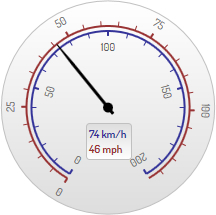 (SE, EE, CE) Next Generation Maker Platforms: Intel's Galileo Gen 2
(SE, EE, CE) Next Generation Maker Platforms: Intel's Galileo Gen 2- (EE) Atmospheric Monitoring Station
- (ChE) Reverse Analysis of Positive Developer (Sodium Hydroxide) (Associate: Mr. Rankin)
- (All) Smart Box
- (CE, SE) (GAUGE to the right) Arduino as Web Server (Highcharts): Trinity's ($$$$) Solar Dashboard (our Intranet Data) (Everett Robinson's Super Data Logger Project)
- (EE, SE) Mobile Tour Assistant (Mariano: How Restaurant Beepers Work: )
- (ES, CE, EE) Digital Design theory and principles
- (All) Entrepreneurial Endeavours: Fix-It Services
- (SE, ME) Heliostat (Solar Tracker): Overview: Jack Gettings' (RSGC '11) Project
- (EE, ES) Analog and/or Digital circuit design and implementation using possible components below (I have provided the
 -rating below to give you an estimate of what to expect in terms of difficulty)
-rating below to give you an estimate of what to expect in terms of difficulty)
- Alternatively, perhaps you'd prefer to undertake a Software SRP this year to keep your skills sharp :)
1. Think critically about ideas, systems or processes
2. Generate ideas and insights
3. Design solutions to problems
4. Consider the purpose and ethics of actions
5. Understand how position and experience impacts perspective
1. Use collaboration, feedback and reflection to co-construct knowledge
2. Welcome challenge and adversity: take steps to affect change
3. Embrace failure as part of the learning process
4. Take ful lresponsiblity for decisions and actions
5. Act in our local community: be a full participant
1. Build knowledge capacity in order to act with purpose
2. Innovate and design sustainable change when required
3. Demonstrate an understanding of literacies through creative expression
4. Contribute positively and substantially to a learning community
 Edgar Dale's Learning Pyramid was one of the inspirations that led to the creation of our ACES program in 2003. What learners 'do' is the foundation of his Cone of Experience. ISPs are the primary 'doing' means by which we achieve Edgar's claim and that we honour RSGC's Mission Statement (...each boy will be the best version of himself), Primary Objective (...prepare boys to thrive and lead in changing world), and Academic Vision (blaze trails, take risks, dig in). One aspect of what lies ahead is becoming clearer by the month, namely, only those individuals that are deeply committed to continuous skill development can hope to thrive. Whether you eventually lead will require additional talents and twists of good fortune.
Edgar Dale's Learning Pyramid was one of the inspirations that led to the creation of our ACES program in 2003. What learners 'do' is the foundation of his Cone of Experience. ISPs are the primary 'doing' means by which we achieve Edgar's claim and that we honour RSGC's Mission Statement (...each boy will be the best version of himself), Primary Objective (...prepare boys to thrive and lead in changing world), and Academic Vision (blaze trails, take risks, dig in). One aspect of what lies ahead is becoming clearer by the month, namely, only those individuals that are deeply committed to continuous skill development can hope to thrive. Whether you eventually lead will require additional talents and twists of good fortune.  Although universities like to be secretive about their admission criteria, their strategies are exposed indirectly through their offers of early acceptance. The reality is that for the first round of acceptances they simply slice off the top marks presented to them. Your PSE means nothing at this stage, which is a huge fail on their part. Consequently, some Grade 11 ACES feel pressured to drop our program in Grade 12 and throw the extra hours saved into being part of this first wave of acceptances. This is short-sighted in my opinion, in the sense that when you graduate from university, having had next to zero opportunity for practical skill building over your four undergraduate years, employers will care little about your marks. Instead, they want to know about what you have accomplished OUTSIDE of school, what projects you have developed and what skills you have. How tragic. When universities finally adapt to the new realities, we'll reassess our ACES program.
Although universities like to be secretive about their admission criteria, their strategies are exposed indirectly through their offers of early acceptance. The reality is that for the first round of acceptances they simply slice off the top marks presented to them. Your PSE means nothing at this stage, which is a huge fail on their part. Consequently, some Grade 11 ACES feel pressured to drop our program in Grade 12 and throw the extra hours saved into being part of this first wave of acceptances. This is short-sighted in my opinion, in the sense that when you graduate from university, having had next to zero opportunity for practical skill building over your four undergraduate years, employers will care little about your marks. Instead, they want to know about what you have accomplished OUTSIDE of school, what projects you have developed and what skills you have. How tragic. When universities finally adapt to the new realities, we'll reassess our ACES program. 

 (All) For Specialists: Focus on ONE component of a circuit (ie.
(All) For Specialists: Focus on ONE component of a circuit (ie. 
